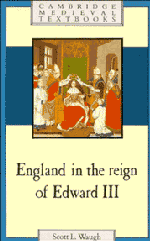Book contents
- Frontmatter
- Contents
- List of figures and tables
- Acknowledgements
- Map 1 Towns and villages mentioned in Chapters 3–6
- Map 2 Ecclesiastical sites mentioned in Chapter 9
- Part I Overview
- Part II Economic challenges
- Part III Government and communities
- Part IV Politics
- 12 Negotiating consent: council and parliament
- 13 Political conflict
- 14 Conclusion
- Glossary
- Bibliography
- Index
12 - Negotiating consent: council and parliament
Published online by Cambridge University Press: 05 June 2012
- Frontmatter
- Contents
- List of figures and tables
- Acknowledgements
- Map 1 Towns and villages mentioned in Chapters 3–6
- Map 2 Ecclesiastical sites mentioned in Chapter 9
- Part I Overview
- Part II Economic challenges
- Part III Government and communities
- Part IV Politics
- 12 Negotiating consent: council and parliament
- 13 Political conflict
- 14 Conclusion
- Glossary
- Bibliography
- Index
Summary
In practice, counsel and consent took three forms. First, the king routinely sounded his officials in the council. Secondly, he assembled particular groups, such as the magnates, merchants, clergy, or local communities, to consult on specific issues. But, building on Edward I's precedents, it had come to be established under Edward II that parliament was the proper forum for discussing issues affecting the kingdom as a whole. A good example occurred in 1332 when Edward III was dithering over Scotland. He summoned a council to deliberate his options, but the council advised that ‘the business was so weighty that it was necessary to summon parliament, so that our lord the king by common assent could ordain what would be for the honour ofhimself and the salvation of his people’. The maturation of parliament did not diminish royal authority; it buttressed it. Edward wove parliament into every aspect of administration, justice, and politics, but the council remained the centre of decision making and power. Edward's reign thus saw the mutual nourishment of kingship and counsel, enabling an unprecedented mobilization of support and resources.
The difficulty in studying the council and parliament is that procedures and functions grew slowly out of earlier precedents. No acts announced unequivocal changes. Neither kept a complete record of its business. Since there are no signposts clearly marking the stages of development, historians must generalize within broad limits.
- Type
- Chapter
- Information
- England in the Reign of Edward III , pp. 193 - 210Publisher: Cambridge University PressPrint publication year: 1991

